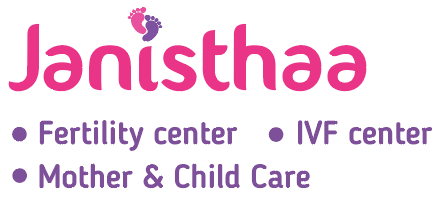Without a strong understanding of the In vitro Fertilization (IVF) process, many couples have pre-considered thoughts about the treatment and its impacts on the baby conceived from that treatment. One prejudice that is pervasive even among the educated couples is that IVF baby are not totally normal.
The foundation of their argument is that IVF baby are not the aftereffect of a natural procedure, however a refined clinical procedure that requires technical expertise and surgeries. They accept that IVF babies can’t be as normal as those conceived normally.
The difference between normal and IVF is that for IVF, the egg is treated by the sperm in a lab under the supervision of experienced researchers. A specific degree of embryo growth happens in the lab, and once the embryo has arrived at the correct stage in its improvement, it is set in the female’s uterus, after which the development and whole pregnancy is carried on as it would after natural conception. Generally, couples settle on IVF in light of the fact that either the male or female partners have a fertility issue that prevents normal pregnancy.
Let’s Have a Look at the Birth Defects Between IVF Babies and Normal Babies
- General Birth Defects vs IVF Birth Defects
Many reports propose an increased risk of congenital abnormalities from the norm with IVF are restricted by methodological and measurable troubles. Patients experiencing IVF are older than the general people who are fertile and increasing female age builds the risk for a genetic abnormality.
Congenital abnormalities are uncommon so logical examinations require a large number of births to check whether there is a connection. It is critical to analyze the quantity of abnormalities in babies conceived from IVF to the quantity of abnormalities in children born to infertile couples without treatment, not to the normal deliveries.
Related Article– WHAT TO DO IF YOUR FIRST IVF CYCLE IS UNSUCCESSFUL
The risk of a baby with a birth imperfection in the general fertile population is approximately 3–5 percent. After an IVF cycle, the best current estimate is that the birth defect rate increased by around 1 percent.
Various examinations have demonstrated that couples with infertility, in the case of getting pregnant by their own or through other non-IVF treatment, have the same increased risk of birth defects from those experiencing IVF.
It is also conceivable that couples experiencing ICSI (intracytoplasmic sperm injection) might be at a somewhat higher risk for having a baby with abnormalities than couples experiencing routine IVF treatment. This is likely a direct result of the increase in chromosome irregularities in men with incredibly low sperm checks. Ongoing examinations recommend that if the sperm check is genuinely natural, there is no increase in birth defects if ICSI is over.
- IVF Birth Defects and Infant Development
A rare condition known as “Imprinting Disorders” has been connected to IVF. Imprinting Disorders are believed to be because of the inappropriate expression of a maternal or paternal gene in early embryo development. Right now, the evaluated risk of this issue with IVF is 2–5 for each 15,000, while the background risk in all inclusive communities is 1 out of 15,000.
The vast majority of studies till date demonstrate that infant development is ordinary in babies conceived through IVF. The significant risk factor in newborn child formative issues is because of unexpected labor more common in multiple pregnancies like twins.
Related Article– 10 IVF SUCCESS FACTORS
Fortunately IVF can enable numerous couples to have babies who might somehow or another be infertile. In general, most babies conceived from IVF don’t have abnormalities. Advancements in genetic testing and technology have also improved our capacity to identify genetic variations from abnormalities early. Couples considering IVF need to examine genetic testing alternatives with their primary care physician to decide whether this treatment is suitable for their circumstance.
Infants brought into the world through IVF have the possibility of birth defects (around 1-2%). However, researches show that the birth defects are most likely identified with the idea of the mother’s infertility rather than IVF treatment. For instance, the imperfection may really be the consequence of older maternal age.
If you are worried about the chances of abnormalities in IVF babies, clear all your doubts and get expert treatment from Dr. Shwetha Y Baratikkae at Janishtaa Fertility Centre Bangalore. With her immense expertise and hundreds of clients success rates, she can guide you in the right way to deal with your fertility issues with the latest technology treatments.

